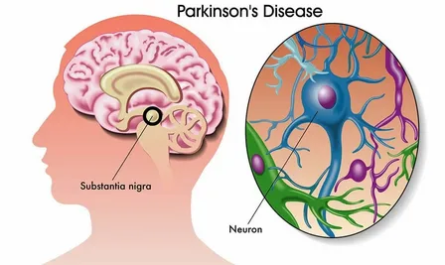Obesity is a growing epidemic in the United States, affecting more than 2 in 5 adults. While bariatric surgery has proven to be an effective treatment option, a recent survey conducted by Orlando Health highlights the prevailing misconceptions about this procedure, potentially deterring individuals who could benefit from seeking the necessary treatment.
Andre Teixeira, MD, medical director and bariatric surgeon at Orlando Health Weight Loss and Bariatric Surgery Institute, explains that treatment plans for obesity are tailored to each patient based on factors such as body mass index and existing medical conditions. These plans may include medication, lifestyle changes, counseling, and bariatric surgery. Dr. Teixeira emphasizes that by adopting a personalized approach, health issues caused by obesity, ranging from diabetes to heart disease, can be effectively reversed. However, societal attitudes that question the need for surgery or stigmatize those who choose it can significantly diminish the chances of individuals successfully achieving long-term weight loss and maintaining a healthy lifestyle.
The national survey, conducted by Ipsos, reveals that 79% of Americans believe weight loss surgery should be pursued only as a last resort, while 60% perceive it as a quick fix for shedding pounds—a misconception that Dr. Teixeira strongly refutes.
Dr. Teixeira emphasizes that bariatric surgery is by no means an easy way out. Rather, it serves as a tool to jumpstart necessary changes in diet and lifestyle. Following the surgery, it is up to the patient to learn how to eat well, incorporate exercise into their routine, and shift their mindset in order to maintain their health in the long run.
The guidelines provided by the American Society of Metabolic and Bariatric Surgery (ASMBS) and the International Federation for the Surgery of Obesity and Metabolic Disorders (IFSO) were recently updated, expanding access to bariatric surgery. These guidelines reflect advancements in laparoscopic and robotic surgery techniques, making the procedure less invasive and safer than ever before. However, despite the increased accessibility to surgical treatment for obesity, only 1% of those who clinically qualify actually undergo the procedure.
The survey also revealed that 61% of respondents believe that exercise and diet alone should be enough to address obesity.
Muhammad Ghanem, MD, a bariatric surgeon at Orlando Health Weight Loss and Bariatric Surgery Institute, highlights the negative stigma surrounding obesity and bariatric surgery. Many patients feel defeated if they are unable to lose weight on their own. However, Dr. Ghanem emphasizes that obesity is a disease with causes that are often beyond an individual’s control. This validation and understanding can bring significant relief to patients who have struggled with their weight for most of their lives.
One patient’s experience exemplifies the impact of bariatric surgery on overall health and well-being. Maritza Cruz Rivera, 64, endured years of pain and fatigue before reaching a turning point during a routine visit to her primary care physician. When she saw her weight on the scale, she was moved to tears. Determined to address her weight and seek professional help, she spoke with friends and family. While some supported her decision, she also encountered various misconceptions. Rivera advises individuals to consult their doctors for accurate information and make decisions based on what is best for their health.
Following the surgery, Rivera transformed her relationship with food, incorporating nutritious salads and soups into her diet. A year later, she achieved a healthy weight and began living the life she had always aspired to have, engaging in activities such as riding her bicycle with her grandchildren, going for walks in her neighborhood, and dancing—a favorite pastime she had not enjoyed in two decades.
Rivera encourages anyone struggling with obesity and feeling trapped or depressed to avoid isolating themselves. She reassures individuals that there is always a solution and advises seeking help from healthcare professionals to regain control over their health and wellbeing.
*Note:
1. Source: Coherent Market Insights, Public sources, Desk research
2. We have leveraged AI tools to mine information and compile it



